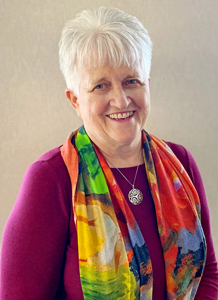From smartphones and watches to social media platforms, the world we live in today is much different than the one from twenty or even ten years ago. Technology continues to grow at a rapid pace as do the impacts these new devices are having on our mental wellbeing.

Ann Sullivan, MD
Commissioner
NYS Office of Mental Health
Specifically, we are seeing impacts on our children’s self-esteem, mental wellbeing, and the way they perceive the world around them. Technology is changing the way youth interact, and behavior that was once limited to physical interaction is carrying over into cyberspace via texting and instant messaging. Suffice to say, the impact has been both dramatic and troubling.
Social media use by youth is a complex issue with both positive and negative impacts. On the positive side, social media has enabled some youth to make positive social contacts, be less isolated, and even be inspired by some positive messages of leaders, celebrities, and friends.
On the serious negative side, youth who spend more than three hours a day on social media face double the risk of mental health problems, according to a report by the U.S. Department of Health and Human Services. This includes symptoms of depression and anxiety. When asked about the impact of social media on their body image, 46 percent of adolescents between the ages of 13 and 17 said social media makes them feel worse.
Social media use was also a common theme during Governor Kathy Hochul’s Youth Listening Tour with OMH and the Office of Children and Families in 2023. The resulting report found that youth keenly understand the benefits and risks of social media and the potential strategies to support healthy use.
Given this situation, we must be cognizant of how technology is affecting young minds and take steps to mitigate the harmful side effects. To address this issue, Governor Hochul has been advancing legislation and initiatives aimed at reducing the impact technology and social media have on our youth.
In June, Governor Hochul signed into law the SAFE for Kids Act, requiring that social media companies restrict addictive feeds on their platforms for users under 18. Unless parental consent is granted, users under 18 will no longer be able to receive addictive feeds. Social media platforms will also be prohibited from sending notifications regarding these feeds to minors between 12 a.m. and 6 a.m. without parental consent.
The new law empowers the state Attorney General’s Office to seek civil penalties of up to $5,000 per violation, among other remedies, and develop acceptable age verification and parent consent methods as part of the rulemaking process. In addition, the governor signed into law the New York Child Data Protection Act, which prohibits online sites from collecting, using, sharing, or selling personal data of anyone under the age of 18 unless they receive informed consent or unless doing so is strictly necessary for the purpose of the website.
We also need to ensure that our parents, teachers, and youth understand the gains and risks of social media and that we educate our communities on how to provide positive uses and help prevent negative outcomes. As with most challenges we face, it takes a community working together to solve the problem.
Governor Hochul also launched the ‘Get Offline, Get Outside’ campaign over the summer by encouraging New York’s youth to put down their mobile phones and devices, take a break from social media, and enjoy recreation and outdoor social gatherings. New York State parks waived pool fees to expand access and encourage other outdoor activities, inspiring major increases in attendance at state parks.
In addition to holding tech companies accountable and educating our communities, we are also providing schools an opportunity to bring mental health assistance directly to youth on school grounds. Earlier this year, Governor Hochul allocated $20 million to help establish a school-based mental health clinic satellite in any school that wants one and further streamlined the process of developing these critical resources. This builds on the $5.1 million awarded in 2023 to support 137 new school-based clinics, including 82 at high-needs schools, bringing the total number of clinics to more than 1,200 statewide.
During the Governor’s Youth Listening Tour, New York teens emphasized how their friends often come to them first when they face an emotional issue, and they want to know how to help. We are launching Teen Mental Health First Aid to help teens help teens. We are also hopeful that as youth better understand mental health issues and how interventions can help, they may consider a career in helping others!
As always, OMH is committed to expanding outreach to all our young people and providing help and hope, especially for those who are most vulnerable and at risk. As we continue to examine the relationship youth have with technology and social media, how they use it to communicate, and the impacts it is having on their mental wellbeing, we must mitigate its negative impacts and ensure that young people have somewhere trusted to turn, when and where they need it.
Ann Sullivan, MD, is Commissioner of the NYS Office of Mental Health (OMH).



